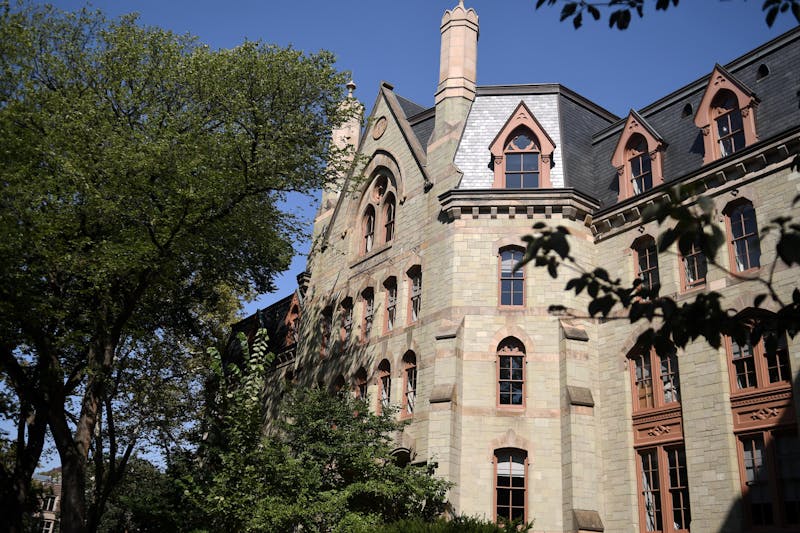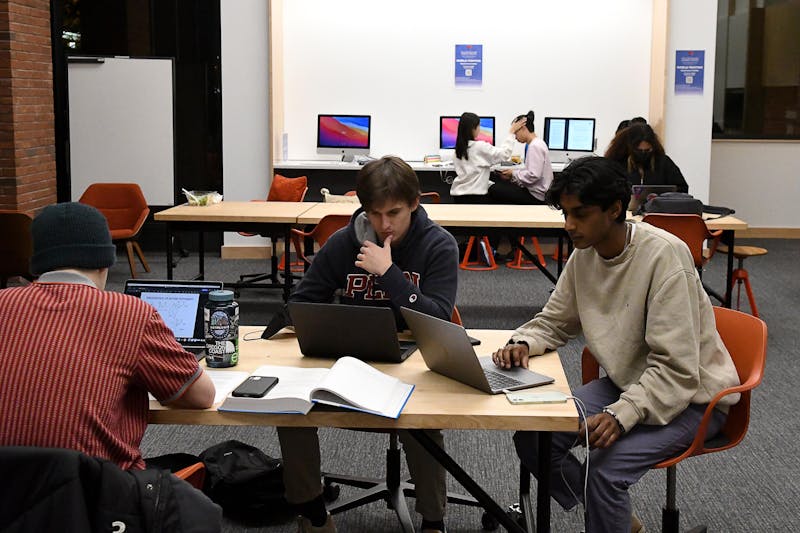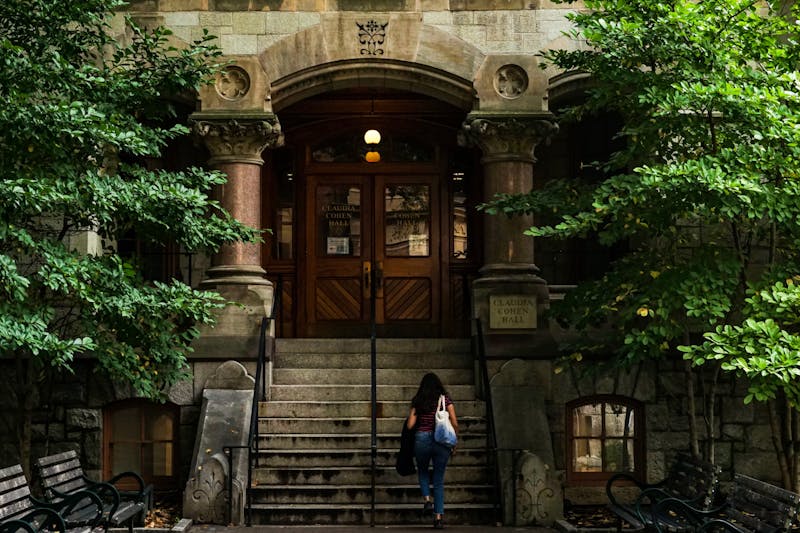
The Benjamin Franklin Scholars (BFS) program prides itself on being a community for students who share broad intellectual interests. While this website description is appealing to incoming first years invited to apply, it’s necessary to know all that comes with being in BFS.
First, allow me to paint a picture of my weekly life as a BFS student. It’s 8:30 a.m. on a Monday, and I am doing a 30–minute walk to the Barnes Foundation to “slow look” at Renoir pieces for the next three hours. On Wednesday, I am up again at 8:30 a.m. on the second floor of ARCH for a three–hour lecture on monasticism — albeit by an incredibly engaging professor. Finally, on Friday, I’m in my seminar discussing the point of integration between the respective art history and religious studies content we learned for the week.
This is just a glimpse of my BFS Canvas calendar from the first semester. I can confidently say I was immersed in the museal culture of Philadelphia, whether that was visits to the Philadelphia Museum of Art, the Barnes Foundation, mural tours, or the Kislak Center right on Penn’s campus.
The program has varying requirements among the four schools, but College students in BFS are committed to a more rigorous course load since they are required to take the Integrated Studies Program (ISP), a 2 course unit (c.u.) class during both semesters of their first year. It’s important to note that the excursions from my first semester were specific to the disciplines ISP chose to focus on. As I’m studying cognitive science and classical studies this semester, frequent trips have been replaced with back-to-back 2000-word papers and hours deciphering Aristotle readings.
With the 4.5 c.u. limit on every first year’s fall semester, ISP will effectively take up half of your schedule, leaving less time to take introductory courses for potential majors or other avenues of academic exploration.
However, from a pragmatic standpoint, you’re getting at least 3/7 of your sector requirements accomplished. ISP offers a unique opportunity for students to get a “wild–card” sector, which they can use to fulfill any of the seven sector requirements without taking a class in that discipline.
“For instance, if you would rather not pursue STEM, the wild card can fulfill sector six, or if you are interested in pursuing STEM, the wild card can go towards sectors one or two,” said associate director of ISP Julio Tuma.
Now that I’ve outlined the good and the bad, the question remains of what kind of student should or shouldn’t commit to this program.
While a pre-med student with many prerequisites to fulfill may want to think twice before filling up half of their course load with ISP, other students who come to Penn with a clear path in mind might benefit from this program as a means of academic exploration. On the opposite end, completely undecided students with no idea of where to start could also benefit from ISP as a direct exposure to four distinct disciplines that are specifically designed to be integrated.
In fact, from the faculty perspective, the integrative methodologies they teach to students will prove themselves relevant outside of ISP.
“I guarantee you that the problems you encounter in real life beyond a job or in professional school are going to be knotty problems. They're not going to be disciplinary,” Tuma explained. “When you go out into the real world, you will have to interact with different kinds of people in different kinds of projects.”
Expanding your intellectual capacity through a comparative lens will undoubtedly happen to every BFS student who engages with the material, but that isn’t to say every student should pursue this avenue of intellectual stimulation.
Students with a broad range of interests who are unsure of what major to settle on should rethink taking ISP when they could be exploring their subjects of interest from a greater variety of classes. The coursework requires you to wrestle with the concepts each week, necessitating an extensive amount of time and effort that certain students may want to devote to another commitment.
While it isn’t necessary for students to be interested in all the disciplines for the ISP year — in fact, according to Tuma, part of the challenge is disorienting yourself even if you’re not completely familiar with the field — consider the time and effort you will be putting towards each subject. If the integrative themes aren't thought–provoking, I’d rethink this program before devoting your first year to exploring those themes in great detail.
My advice? Take great consideration of what the disciplines are for your ISP academic year and if you do end up joining this honors program, be prepared to thoroughly engage in the work.

ASHTI TIWARI is a College first year studying philosophy, politics, and economics from Corning, New York. Her email address is ashti@sas.upenn.edu.
The Daily Pennsylvanian is an independent, student-run newspaper. Please consider making a donation to support the coverage that shapes the University. Your generosity ensures a future of strong journalism at Penn.
Donate












